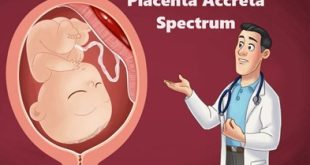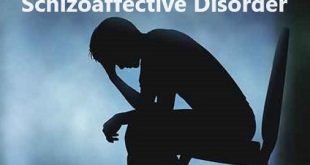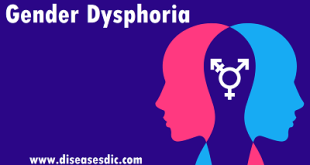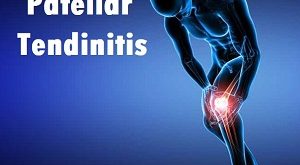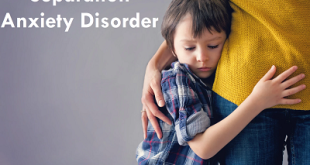What Is Postpartum Depression?
Postpartum depression (PPD) is a complex mix of physical, emotional, and behavioral changes that happen in some women after giving birth. According to the DSM-5, a manual used to diagnose mental disorders, PPD is a form of major depression that begins within 4 weeks after delivery. The diagnosis of postpartum depression is based not only on the length of time between delivery and onset but on the severity of the depression.
Postpartum depression is linked to chemical, social, and psychological changes that happen when having a baby. The term describes a range of physical and emotional changes that many new mothers experience. PPD can be treated with medication and counseling.
The chemical changes involve a rapid drop in hormones after delivery. The actual link between this drop and depression is still not clear. But what is known is that the levels of estrogen and progesterone, the female reproductive hormones, increased tenfold during pregnancy. Then, they drop sharply after delivery. By 3 days after a woman gives birth, the levels of these hormones drop back to what they were before pregnancy.
In addition to these chemical changes, the social and psychological changes of having a baby create an increased risk of depression.
Most new mothers experience the “baby blues” after delivery. About 1 out of every 10 of these women will develop a more severe and longer-lasting depression after delivery. About 1 in 1,000 women develop a more serious condition called postpartum psychosis.
Dads aren’t immune. Research shows that about 1 in 10 new fathers get depression during the year their child is born.
What are the types of postpartum depression?
- Postpartum blues: Better known as the “baby blues,” this condition affects between 50 and 75% of women after delivery. If you are experiencing the baby blues, you will have frequent, prolonged bouts of crying for no apparent reason, sadness, and anxiety. The condition usually begins in the first week (one to four days) after delivery. Although the experience is unpleasant, the condition usually subsides within two weeks without treatment. All you’ll need is reassurance and help with the baby and household chores.
- Postpartum depression: This is a far more serious condition than postpartum blues, affecting about 1 in 10 new mothers. If you’ve had postpartum depression before, your risk increases to 30%. You may experience alternating highs and lows, frequent crying, irritability, and fatigue, as well as feelings of guilt, anxiety, and inability to care for your baby or yourself. Symptoms range from mild to severe and may appear within days of the delivery or gradually, even up to a year later. Although symptoms can last from several weeks up to a year, treatment with psychotherapy or antidepressants is very effective.
- Postpartum psychosis: This is an extremely severe form of postpartum depression and requires emergency medical attention. This condition is relatively rare, affecting only 1 in 1,000 women after delivery. The symptoms generally occur quickly after delivery and are severe, lasting for a few weeks to several months. Symptoms include severe agitation, confusion, feelings of hopelessness and shame, insomnia, paranoia, delusions or hallucinations, hyperactivity, rapid speech, or mania. Postpartum psychosis requires immediate medical attention since there is an increased risk of suicide and risk of harm to the baby. Treatment will usually include admission to hospital for the mother and medicine.
What causes PND?
Many possible causes for PND have been suggested. There is probably no single reason, but a number of different stresses may add up to cause it.
You are more likely to have PND if you have:
- Previous mental health problems, including depression
- Depression or anxiety during pregnancy
- Poor support from partner, family or friends – or marital difficulties
- A recent stressful event – e.g. death of someone close to you, relationship ending, losing a job.
- Experienced domestic violence or previous abuse
- Arrived in a developed country as a refugee or to seek asylum
There may be a physical cause for your depression, such as an underactive thyroid or low levels of vitamin B12. These can be easily treated.
PND can start for no obvious reason, without any of these causes. Also having these problems does not mean that you will definitely have PND.
Risk factors
Any new mom can experience postpartum depression and it can develop after the birth of any child, not just the first. However, your risk increases if:
- You have a history of depression, either during pregnancy or at other times
- You have bipolar disorder
- You had postpartum depression after a previous pregnancy
- You have family members who’ve had depression or other mood disorders
- You’ve experienced stressful events during the past year, such as pregnancy complications, illness or job loss
- Your baby has health problems or other special needs
- You have twins, triplets or other multiple births
- You have difficulty breast-feeding
- You’re having problems in your relationship with your spouse or significant other
- You have a weak support system
- You have financial problems
- The pregnancy was unplanned or unwanted
Symptoms of Postpartum Depression
Many women feel a bit down, tearful or anxious in the first week after giving birth. This is often called the “baby blues” and is so common that it’s considered normal. The “baby blues” don’t last for more than two weeks after giving birth.
If your symptoms last longer or start later, you could have postpartum depression. Postpartum depression can start any time in the first year after giving birth.
Signs that you or someone you know might be depressed include:
- A persistent feeling of sadness and low mood
- Lack of enjoyment and loss of interest in the wider world
- Lack of energy and feeling tired all the time
- Trouble sleeping at night and feeling sleepy during the day
- Difficulty bonding with your baby
- Withdrawing from contact with other people
- Problems concentrating and making decisions
- Frightening thoughts – for example, about hurting your baby
Many women don’t realise they have postpartum depression, because it can develop gradually.
Complications
Left untreated, postpartum depression can interfere with mother-child bonding and cause family problems.
- For mothers. Untreated postpartum depression can last for months or longer, sometimes becoming a chronic depressive disorder. Even when treated, postpartum depression increases a woman’s risk of future episodes of major depression.
- For fathers. Postpartum depression can have a ripple effect, causing emotional strain for everyone close to a new baby. When a new mother is depressed, the risk of depression in the baby’s father may also increase. And new dads are already at increased risk of depression, whether or not their partner is affected.
- For children. Children of mothers who have untreated postpartum depression are more likely to have emotional and behavioral problems, such as sleeping and eating difficulties, excessive crying, and delays in language development.
Diagnosis
Your doctor will usually talk with you about your feelings, thoughts and mental health to distinguish between a short-term case of postpartum baby blues and a more severe form of depression. Don’t be embarrassed ― postpartum depression is common. Share your symptoms with your doctor so that a useful treatment plan can be created for you.
As part of your evaluation, your doctor may:
Do a depression screening that may include having you fill out a questionnaire
Order blood tests to determine whether an underactive thyroid is contributing to your signs and symptoms
Order other tests, if warranted, to rule out other causes for your symptoms
Treatment
Treatment for postpartum depression is essential for the well-being of the parent and their newborn. The sooner a person receives it, the sooner they are likely to recover. Treatment is effective in most cases.
Once they have identified the issue, the doctor usually prescribes a combination of psychotherapy and medication.
Tips for helping to support recovery include:
- Acknowledging the problem
- Being open about any feelings
- Getting help from friends and family
- Joining a support group
Support groups can reduce the feelings of isolation and provide tools and helpful strategies.
Medications
These may be antidepressants, which can help manage symptoms and improve the mood. They may take 6–8 weeks to work, however.
Meanwhile, the hormonal medication brexanolone (Zulresso) can help relieve depression by restoring the hormonal balance.
If psychosis occurs, antipsychotic medications can help.
All medications can have adverse effects, and it is important to work with a doctor closely to find a treatment plan that works.
There is also a small risk that some medications can enter breast milk. The doctor will work with the person to find one that is likely to be safe and effective.
Psychotherapy
Cognitive behavioral therapy, sometimes called CBT, may help resolve moderate postpartum depression. Its aim is to find new ways to approach and interpret situations and to develop more positive ways of thinking.
Interpersonal therapy may also be a good option. Its goal is to improve communication skills and help develop social networks. This can help a person manage challenges that may otherwise lead to depression.
Treating severe postpartum depression
If symptoms are severe and other strategies are not effective, it may help to spend time in the hospital. In some cases, a doctor may recommend electroconvulsive therapy.
Alternative therapies
Some people may useTrusted Source the following therapies to help relieve postpartum depression:
- Bright light therapy
- Acupuncture
- Massage
- Omega-3 fatty acid supplementation
There is limited evidence that any of these work, however. Check with a doctor first. Anyone interested in acupuncture should be sure to find a qualified practitioner.
Self-care tips
During and after pregnancy, a person can take some steps to help prevent or manage postpartum depression. Strategies include:
- having a healthful diet and getting regular exercise
- keeping all medical appointments and following up about health concerns
- eating small meals regularly to maintain blood sugar levels
- getting at least 7–8 hours of sleep each night
- planning ahead, during pregnancy, to reduce stress after delivery
- speaking openly to loved ones about feelings and concerns
- keeping in touch with friends and family, especially if parenting alone
- asking a healthcare professional about local self-help groups
- asking others for help with practical and emotional challenges
- resting, rather than doing housework, when the baby sleeps
- if possible, avoiding major changes, such as moving house, soon after delivery
- seeking help for housing, social, and other issues that arise
Preventing postpartum depression
There are things you can do to help you keep well such as maintaining a healthy lifestyle and having someone you can talk to and turn to for support.
Going to antenatal classes and making friends with other pregnant women or new parents can also be helpful.
If you are pregnant or thinking about getting pregnant, talk to a GP or your mental health team if:
- you have a history of depression or mental health problems
- someone in your family has had mental health problems after childbirth (for example, your mother or sister)
This is so they can offer you appropriate treatment
You can also talk to a midwife, who can support you or refer you to specialist mental health services if needed. If you have had a mental health problem while pregnant, your doctor should arrange for you to be seen regularly in the first few weeks after birth.
The mental health team, maternity team and GP will work closely with you during your pregnancy and after you have given birth.
 Diseases Treatments Dictionary This is complete solution to read all diseases treatments Which covers Prevention, Causes, Symptoms, Medical Terms, Drugs, Prescription, Natural Remedies with cures and Treatments. Most of the common diseases were listed in names, split with categories.
Diseases Treatments Dictionary This is complete solution to read all diseases treatments Which covers Prevention, Causes, Symptoms, Medical Terms, Drugs, Prescription, Natural Remedies with cures and Treatments. Most of the common diseases were listed in names, split with categories.
